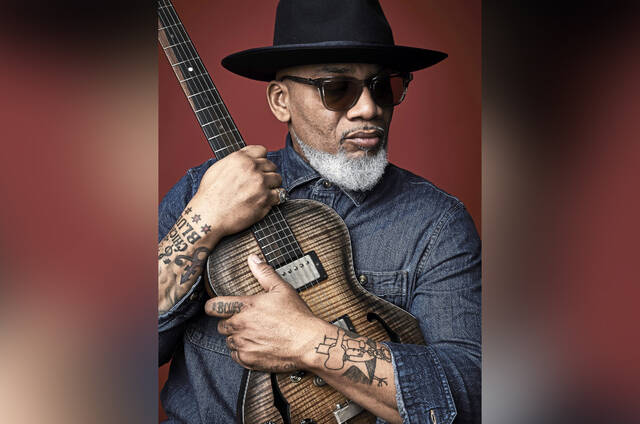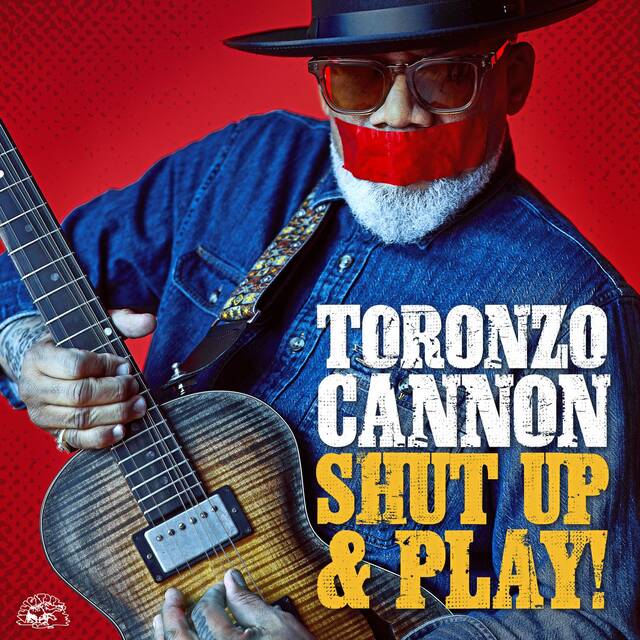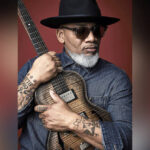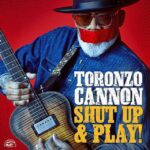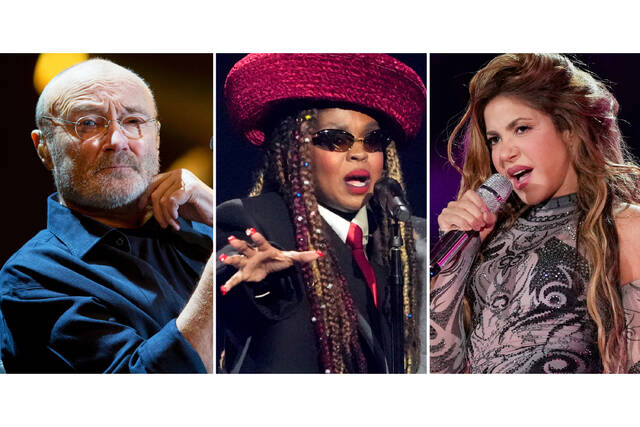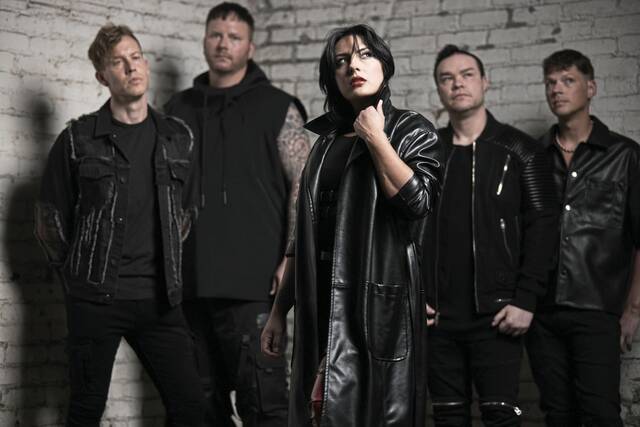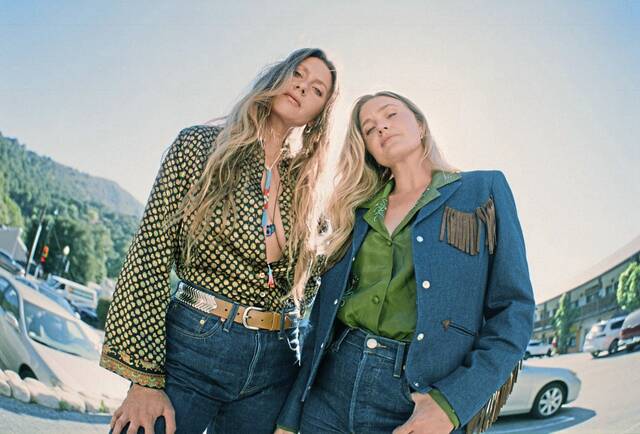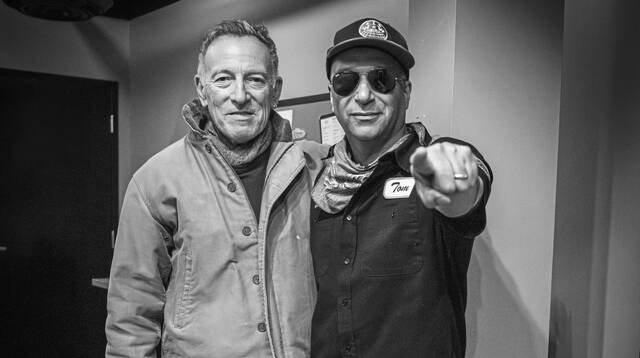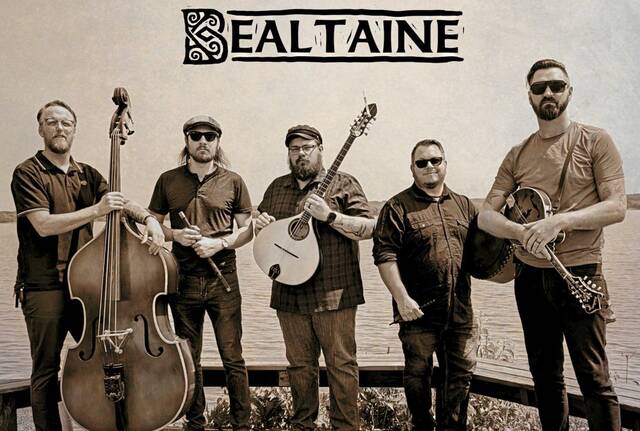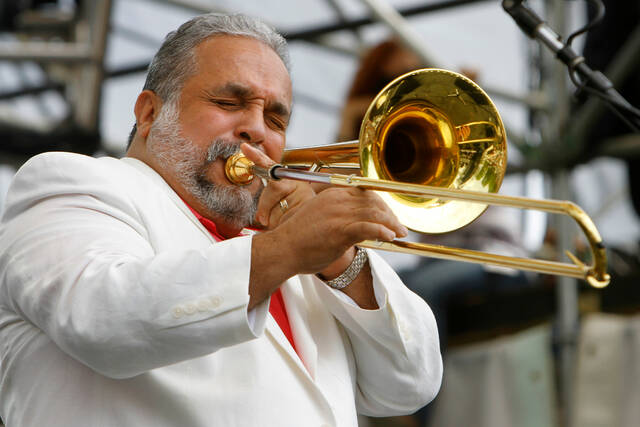Veteran Chicago blues guitarist Toronzo Cannon got married this summer and moved to Minnesota about four months ago.
“I’m like a cat in a new house,” he said with a laugh.
Although he may have relocated to a new state, the southpaw guitarist still plans on repping his hometown.
“I still got that Chicago style of show in me,” he said. “I just like to bring it Chicago style. I like to see people react or some people say, ‘I’ve never heard of you, but I like what I hear,’ that kind of thing. So that’s always cool.”
Cannon and his band, The Chicago Way, will play an afternoon show Oct. 5 at Moondog’s Pub in Blawnox.
“When people don’t know anything about me, it’s like, wow, is this what they do in Chicago? I’m like, yeah, yeah,” said Cannon, who drove a city bus for 29 years. “We’re cut from the cloth of Buddy Guy and Howlin’ Wolf and Muddy (Water). Their shows were, not a crowd participation thing, but it was a thing where we’re all here at this moment together and we’re having fun and we’re listening to stories and we’re finding the common denominator in this thing called life. Hopefully some of my stories and songs will resonate with the audience, ’cause I just don’t talk about ‘my woman left me’-type songs.”
In a Zoom call last week from his Minnesota home, Cannon spoke with TribLive about what drew him to the blues, the left-handed guitar community, statements in music and more. Find a transcript of the conversation, edited for clarity and length, below.
How did growing up in Chicago shape you?
You don’t realize until you’re somewhere else. (laughs) When I first started traveling and going to New York and things like that, as far as driving, if we use that as an example, man, those guys are intense in New York as far as their driving. But I was in Seattle and I’m beeping my horn and going crazy and all that, and people were actually letting me through. So I’m like, oh wow, I’m the guy that’s intense. (laughs) So I had one of the moments where I had to be, I need to calm down. Because I’m used to that energy and that someone’s going to cut me off or they don’t use that blinker or whatever, things like that.
As far as musical, I think some bands just, they’re personable, but I like to really get personal with the audience. I’m in the moment, spur of the moment kind of thing. If I see somebody over there with a red dress on, I might dedicate something to them or whatever, or acknowledge it at least, because it’s very organic. I’m not just going to do a show that I’ve done yesterday and be like, OK, take it easy. It’s not cookie cutter. I’m liable to do, not anything, there’s no chandeliers around for me to swing off of, but just emotionally swinging off a chandelier and having fun and relating to the audience, making them laugh or saying things on my mind, again, that’s universal or whatever about certain topics, this part of the song.
What was it about the blues that drew you into it?
Just the stories, the realness of it, the storytelling aspect of it that people would want. I attribute it to, kind of like, when they say misery loves company. It’s kind of like that in the blues, where it’s like, some songs could give you misery, but some songs, of course, give you hope or give you happiness, but if there’s a situation, I have a song called “Him” where I was dating a lady that was constantly thinking about her ex, and it’s like, OK, I don’t want to hear anything else about your ex, right? But I’m sure there’s someone in the audience that’s like, you know what? That happened to me before, that kind of thing. So just the common denominators of that, just things like that.
You started playing guitar at 22?
I was a little late in life, yeah.
It’s a late start and you’re also lefty. Was that hard to find that guitar or is it a little easier to find nowadays?
I remember being a little bit more adamant on, yeah, I just realized I’m a left-handed guitar player, so I’m going to stick to it when the sales guy was trying to sell me a right-handed guitar. Because his thing was, well, you don’t know the difference anyway. But I’m like, yeah, dude, I’m grown, give me a left-handed guitar, because that’s my natural reaction. I was a full adult and all that stuff when I get my first electric guitar; my sister bought me an acoustic guitar when I was 19.
I didn’t know I was left-handed until I picked it up and saw the big string on the top. I was like, ah, so we had to take it back to the shop and the guy switched it around. At that time, I was trying to play some Bob Marley songs and reggae and things like that. And “Redemption Song,” the bass line, I was trying to do that. But when I looked at my guitar, it was like at the bottom. So I came into this thing kind of just innocent and naive, where I’m like, I just like music, but I just want to learn this, figure out this song. So it’s always been, for the most part, learning as you go, learning on the job kind of thing.
Related
• Q&A: Tommy Castro and the Painkillers• Q&A: Chris Cain
• 2025 Pittsburgh area concert calendar
Do you look at left-handed guitarists as a fraternity since there’s just not as many?
Sometimes, yeah. I think I know all the lefties in Chicago. (laughs) Because sometimes there’s guitars where it’s like, oh, yeah, Tom Holland bought that guitar. Ah, Tom Holland, another lefty. Or you try to get a lefty that you know one of your other left-handed friends, like Mel Washington, like they’ll get. But yeah, it is like a fraternity because we know how it is to walk in a guitar store and there’s 3,000 guitars, and they’re only like two lefties. (laughs) So there’s a certain community in that.
You have the recent album “Shut Up & Play!” so how would you describe the overall statement of that album?
There’s things now where there’s some people don’t want to hear statements in songs. They don’t want to hear messaging in songs. And it’s, I wouldn’t say nerve-wracking, but that’s the essence of the blues or the essence of song period is to air out your grievances with chord changes. (laughs) Or what’s on your mind or it could be cathartic where I’m singing my song so I won’t be climbing the walls or freaking out. But some people, I guess if it hits them in a certain way, they don’t want to hear political stuff in songs or they don’t want to hear something that might touch their heart or something they might not agree with, but it’s part of life.
I have a song on my CD called “Message to My Daughter.” There’s some that thought that song was too personal. And I’m like, is that not the blues? Would you rather me sing about infidelity and jumping out of a second-floor window in some bushes because her man is coming home other than the tender song about divorce, when you’re trying to get it together with your children. I just always thought that was like, how can you tell me not to sing a tender song about my daughter and divorce, which I’m sure men go through and women, when it comes to divorce, and it’s something that’s not just again, a regular old trope of my woman left me. It forced them to think outside the box and that there’s other types of blues other than that because sometimes, if your woman left you for four albums, you gotta write a song about yourself and say, why are all these women leaving me?
You have to take a look at yourself then …
That’s when you turn the camera, turn the pen around and say, you know what, I’m a piece of crap. (laughs) That’s why they’re leaving me. Actually years ago, I wrote a song called “No Good Man” and it was all on my little independent ventures or whatever, and women love that song. Basically, I was talking about how not coming in at night blah blah blah, I’m chasing every skirt in town and women just love that song, and it was like, I get it. I’m sure some women get tired of being the butt of the joke or the butt of the song, but the “shut up and play” aspect of it is just kind of like, I can’t shut up and play. As a musician, as an entertainer, as a lyricist, I’ve got to let you know how I feel because that’s what people really want to see and feel.
There’s a certain voyeurism in music where people are like oh wow, like in rap music. I’ve lived in bad neighborhoods, but some of the neighborhoods I’d hear in these rap songs, it’s like whoa. I never lived like that, so there’s a certain voyeurism I think in music that people really want to feel, but then when it’s something that they don’t want to talk about, then they close off and say, ‘Oh, just just entertain me. Don’t tell me anything real.’ Well, I can’t be limited like that. I got to tell you all of the aspects. I wrote a song called “Insurance” and it’s got the word colonoscopy in it. (laughs) These are real songs, so I just think people have to come around and just say, this is his song. This is his life, the way he knows it.
Have you had anybody actually ever say “shut up and play” or is it more just the sentiment or the feeling?
Oh, you get the sentiment online on Facebook and things like that where people say, can we just stick to the music? OK, we’ll stick to the music then. So I wrote a song, “Shut Up and Play.” So the lyrics are what they are. It talks about marginalization and trying to get things together and equality and things like that. But I put it in a rock sense where it’s like, sometimes you have to put medicine in the sugar cube.
Blues has always been a message music from the guy in the field picking cotton, really singing to the next guy over there just picking cotton about his plans or what they’re going to do because they weren’t allowed to talk in the fields and things like that. So they just sang out the blues or whatever. But it’s always been a message music, and again, I can’t keep writing songs about women and bashing women and what they’ve done and I’ve done nothing. I’m an innocent victim in this whole thing called relationships. So I’m just an advocate for writing real songs. I tell a young guy sometimes, if they ask, how do you write songs? I say, hey, write what you feel. If you never enjoyed the sweet nectar of a woman, then write about that. (laughs) If you’re a virgin, write about the blues of being a virgin. It is what it is.


